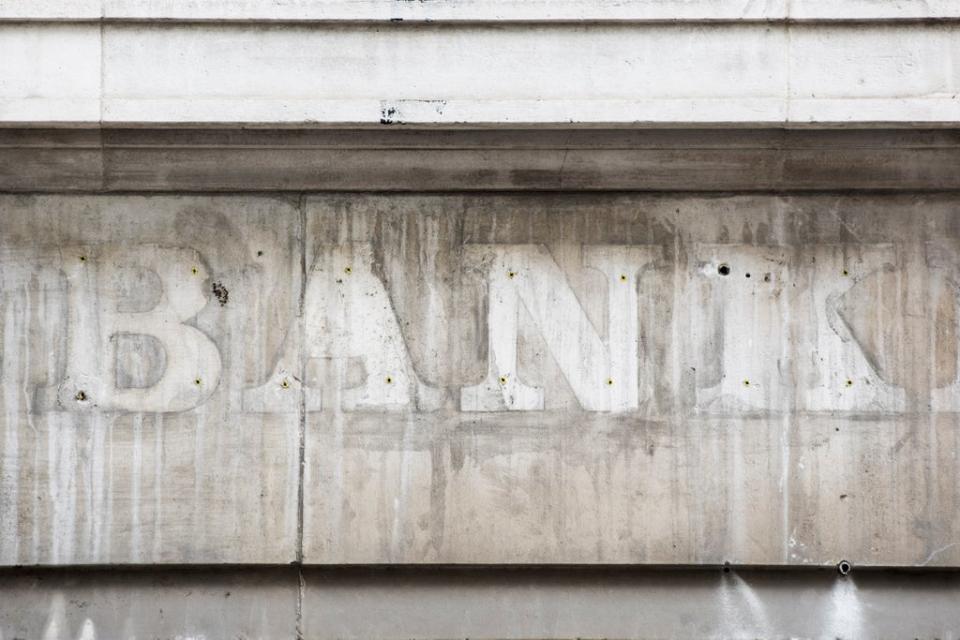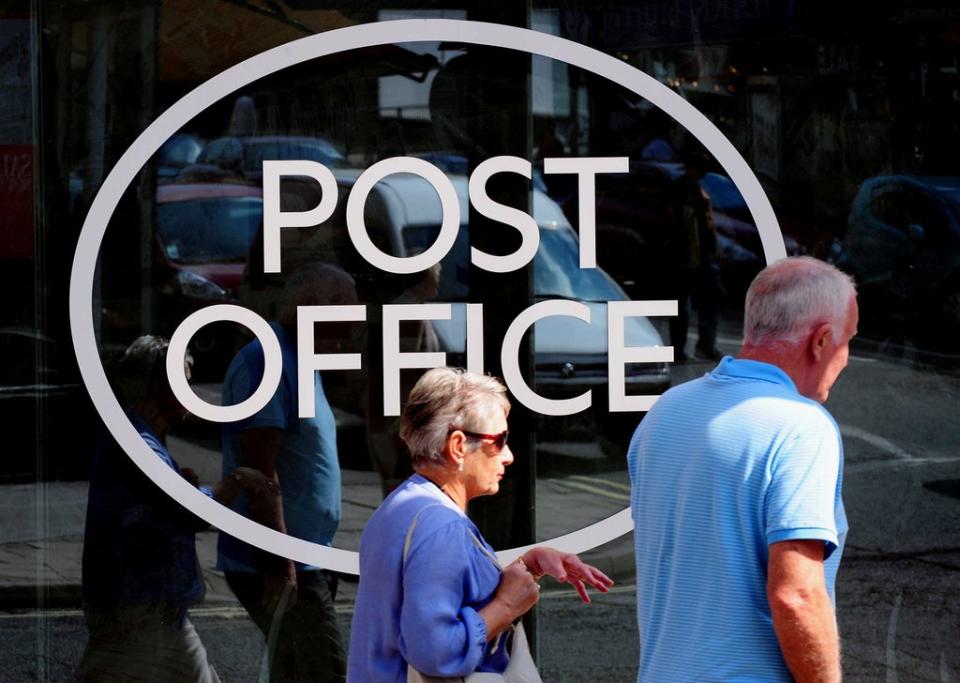Nearly half of banks’ branches ‘have been lost since 2015 or are set to shut’

Nearly half of banks’ branches have been lost since 2015 – or are scheduled for closure, according to Which?
Vulnerable customers are being left at risk of being “cut adrift”, the consumer champion said after it analysed thousands of branches owned by many banks and building societies across the UK to gauge the scale of the shut-downs.
Which? counted 4,735 branches – equating to 48% of the network analysed – which have already closed or been earmarked for closure since January 2015.
The analysis was carried out for the PA news agency.
Other recent research from Which? found there had been 736 bank branch closures in 2021 at the time it carried out that study, with another 221 planned to go in 2022.
Wave after wave of bank branch closures in recent years have left many people who depend on them for essential banking services - particularly the elderly and vulnerable - at risk of being cut adrift
Jenny Ross, Which?
The total for 2021 marked an acceleration from 369 branch closures counted by Which? in 2020 and 444 in 2019.
Jenny Ross, Which? Money editor, said: “Wave after wave of bank branch closures in recent years have left many people who depend on them for essential banking services – particularly the elderly and vulnerable – at risk of being cut adrift.
“Recent proposals put forward to help secure the future of cash are very promising, but we will be watching closely to see if they are preventing further communities from losing cash access and vital banking services.
“Voluntary measures cannot provide the certainty that consumers’ need for cash will continue to be met. That’s why they need to be underpinned by long-promised legislation that guarantees consumers can continue to access cash for as long as it is needed.”
Meanwhile, a survey by ATM operator Cardtronics of users of its cash machines across the UK in December indicated that 37.9% of people used cash to buy Christmas presents this year.
The UK Government has said it will legislate to protect the future of cash, and various industry efforts to maintain access are gathering pace, such as cashback without a purchase in shops.
The Post Office also helps to fill in cash access gaps, with an agreement with many banks allowing people to do their everyday banking over its counters.
In December 2021, it was announced that several major banks had agreed to join forces and share services.
The collaboration has been achieved through the Access to Cash Action Group (CAG).
It means that, going forward, if a bank involved in the initiative decides to close a branch, it will inform ATM network Link which will see if a new solution is needed.
There are also plans for more shared “bank hubs”, which involve banks working jointly to offer basic cash services on high streets, with spaces for people to speak to their own bank. Each bank may offer its own services from a hub, on different days of the week.
There are still five million people who rely on cash and the decision to close a bank branch can be really disruptive. That's not only vulnerable people who may be on low incomes or have a disability, but small businesses, whose customers pay in cash and can no longer deposit their takings at the branch that was once across the high street
Natalie Ceeney, Cash Action Group
Natalie Ceeney, chair of Cash Action Group, said some people are not able to or cannot afford to participate in the “digital economy”.
She said: “I completely understand when I hear people tell me that they haven’t set foot in a bank branch in years or no longer use cash. This number is only going to get bigger.
“However, there are still five million people who rely on cash and the decision to close a bank branch can be really disruptive. That’s not only vulnerable people who may be on low incomes or have a disability, but small businesses, whose customers pay in cash and can no longer deposit their takings at the branch that was once across the high street.
“We were really pleased to announce before Christmas the collaboration between all the major high street banks to ensure all communities continue to have excellent cash services.
“In villages and smaller high streets, this may be cashback without purchase or a new ATM.
“In larger towns, this will mean enhanced Post Offices or bank hubs. For many years there’s been very little communities could do when facing the loss of the last bank branch. Now there is a system in place to make sure that community continues to have the services it needs.”

Martin Kearsley, banking director at the Post Office, said: “Bank branch closures over recent years have been relentless and, while they paused briefly during the pandemic lockdown, have accelerated since.
“We’re handling £3 billion a month in cash deposits and withdrawals and customers appreciate being able to bank in person with a knowledgeable and friendly postmaster in a secure environment.
“This year we have operated two Post Office bank hubs, sharing facilities with visiting bank reps so they can meet their customers in branch, which have been universally praised by local residents and businesses. We’re delighted that the banks have seen the success of the hubs and have agreed to work with us to open more Post Office bank hubs in 2022.”
A spokesperson for trade association UK Finance said: “Ensuring there is continued access for those who need it, both now and in the future, is something the banking and finance industry has publicly committed to delivering.
“As part of this, the Access to Cash Action Group (CAG) established earlier this year, chaired by Natalie Ceeney, recently set out plans on how the industry will deliver on commitments to preserve access to cash and banking services. This includes shared bank hubs alongside free ATMs, and cashback without purchase.
“Growing numbers of customers are opting to use new technologies to manage their money, but technology is not for everyone and bank branches continue to play an important role in the life of local communities, meaning decisions to close them are never taken lightly.”
The Financial Conduct Authority (FCA) has previously said most people currently have reasonable access to cash, and banks and building societies remain responsible for assessing the impact of any branch closures and for considering alternatives to meet customer needs.
Our research shows just over half of people are still using cash for day-to-day purchases at least once a fortnight
Graham Mott, Link
Lord Chris Holmes of Richmond said: “I think we’ve certainly seen since the beginning of the pandemic that when traditional face-to-face services close or are reduced, then it has an impact on the old, disabled and financially vulnerable.
“Some people would love to bank online, but can’t because of their broadband.”
He continued: “The direction of travel is more, not less digital, therefore, we need to understand what we can do to help bring people with us. Look at the success of how we switched over people from analogue to digital TV 10 years ago. We need a similar review to understand the issues and to come up with the answers.”
Graham Mott, director of strategy at Link, said: “Since the beginning of the pandemic, we’ve seen a big drop off in cash use and visits to ATMs.
“On average, transactions are down by around 35%. However, cash is still important and while we’re visiting ATMs less often, we’re still withdrawing around £2 billion every week from cash machines and our research shows just over half of people are still using cash for day-to-day purchases at least once a fortnight.
“Also, some communities continue to be far more cash reliant than others, so ATMs and cashback without purchase will be important for years to come.”

 Yahoo Finance
Yahoo Finance 